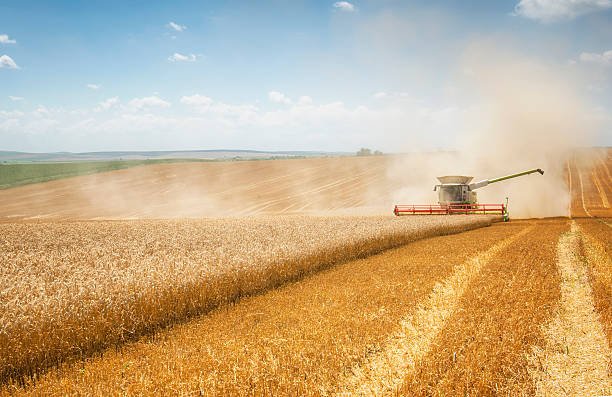Introduction to Agrawau and Its Significance
Agrawau is a term that is increasingly gaining attention in discussions surrounding rural development, sustainability, and modern agricultural practices. It refers to a movement or philosophy that integrates technology, sustainability, and community-centric approaches to transform rural areas. Agraawau aims to bridge the gap between traditional agricultural methods and modern innovations, ensuring that rural areas thrive economically, socially, and environmentally.
The Origins of Agraawau and Its Cultural Relevance
The concept of Agraawau originates from a deep-rooted understanding of the challenges faced by rural communities. It draws inspiration from traditional farming practices, yet it incorporates modern technologies to increase productivity and environmental sustainability. Agraawau advocates for a harmonious coexistence between nature and technology, ensuring that rural areas benefit from advancements without compromising their cultural and ecological heritage.
How Agraawau Promotes Sustainable Agriculture
One of the central tenets of Agraawau is sustainable agriculture. By focusing on eco-friendly farming techniques, Agraawau helps to reduce the environmental footprint of agricultural activities. This includes using organic fertilizers, practicing crop rotation, and implementing water-saving technologies that ensure long-term soil health and reduce the reliance on harmful chemicals.
Agraawau and Its Role in Eco-Friendly Technologies
Agraawau strongly emphasizes the role of eco-friendly technologies in rural development. Solar energy, wind power, and other renewable sources are integrated into agricultural practices to reduce dependency on non-renewable energy sources. Through these technologies, Agraawau fosters energy independence and mitigates the environmental impact of farming operations.
Agraawau’s Focus on Rural Community Empowerment
At the heart of Agrawau lies the idea of empowering rural communities. Through education and skill-building programs, Agrawau aims to equip farmers and rural inhabitants with the knowledge and tools they need to improve their livelihoods. This community-driven approach ensures that the benefits of Agrawau are felt at the grassroots level, fostering a sense of ownership and pride in local development efforts.
The Economic Impact of Agraawau in Rural Areas
Agrawau has a significant potential to boost the local economies of rural areas. By integrating modern agricultural practices, improving productivity, and fostering sustainable business models, Agraawau provides new economic opportunities. It enables farmers to access new markets, reduce waste, and increase their profitability, thus ensuring economic stability and growth in rural regions.
Agraawau and Rural-Urban Integration
One of the major challenges facing rural communities is their isolation from urban areas. Agraawau promotes rural-urban integration by facilitating the flow of resources, knowledge, and technology between urban centers and rural areas. This exchange helps rural areas modernize while preserving their unique cultural and agricultural practices, resulting in a more balanced and sustainable development model.
Agrawau’s Contribution to Climate Change Mitigation
Climate change poses a major threat to agricultural practices, especially in rural regions. Agraawau’s sustainable farming practices, including water conservation, soil restoration, and the adoption of climate-resilient crops, play a crucial role in mitigating the impacts of climate change. By embracing these strategies, Agraawau helps rural communities adapt to changing environmental conditions.
Education and Training Under the Agrawau Movement
A cornerstone of the Agrawau philosophy is education. Rural communities often face a lack of access to modern agricultural education, which can hinder development. Agrawau seeks to address this gap by providing training programs in sustainable farming techniques, renewable energy use, and business management, thus empowering individuals with the skills necessary for success in the modern world.
Agrawau’s Impact on Rural Infrastructure Development
For rural areas to fully benefit from Agraawau, infrastructure development is crucial. The movement encourages the building of roads, irrigation systems, and communication networks that enable farmers to reach new markets and access essential services. These improvements create an environment in which rural communities can thrive economically and socially.
The Role of Agraawau in Biodiversity Conservation
Agrawau is also committed to preserving biodiversity. Through sustainable farming practices, agroforestry, and conservation efforts, it helps to protect local ecosystems. This commitment ensures that rural communities not only benefit from agriculture but also contribute to the preservation of the natural environment for future generations.
Agraawau’s Contribution to Women’s Empowerment
Gender equality is a key principle within the Agraawau framework. The movement recognizes the vital role that women play in agriculture and rural development. By providing women with equal access to resources, training, and leadership opportunities, Agraawau fosters gender equality and empowers women to take on leadership roles within their communities.
The Role of Technology in Agraawau’s Vision
Technology is a driving force behind Agraawau’s success. From precision farming techniques that maximize yield to the use of mobile apps for real-time market information, technology enhances the productivity and efficiency of rural agriculture. Agraawau promotes the adoption of these technologies to help rural communities stay competitive in an increasingly globalized world.
How Agrawau Enhances Agricultural Productivity
Agrawau focuses on optimizing agricultural practices to maximize productivity while minimizing environmental harm. By implementing efficient irrigation systems, using drones for crop monitoring, and adopting smart farming practices, Agraawau ensures that rural areas can produce more with fewer resources, leading to greater food security and economic stability.
Agrawau’s Influence on Rural Health and Wellbeing
Agrawau also addresses the health and wellbeing of rural populations. By promoting organic farming and reducing exposure to harmful pesticides, it ensures that rural communities have access to healthier food. Additionally, the movement emphasizes the importance of clean water, proper sanitation, and healthcare services, contributing to the overall health of rural residents.
The Role of Agrawau in Rural Tourism Development
Agrawau supports the development of rural tourism as a means of generating income and preserving cultural heritage. Through sustainable tourism practices, rural communities can showcase their traditions, art, and agriculture to the world while benefiting economically. This diversification of income sources makes rural areas more resilient to economic fluctuations.
Agrawau’s Role in Disaster Resilience
Rural areas are often vulnerable to natural disasters, such as floods, droughts, and storms. Agrawau focuses on enhancing the disaster resilience of rural communities by promoting flood-resistant crops, building resilient infrastructure, and implementing early warning systems. These measures ensure that rural populations can recover quickly from natural disasters and continue to thrive.
Agrawau and the Global Movement Toward Sustainable Development Goals
Agrawau aligns closely with the United Nations’ Sustainable Development Goals (SDGs). Its commitment to eradicating poverty, promoting sustainable agriculture, ensuring access to clean water, and fostering gender equality directly contributes to the achievement of these global objectives. By implementing the principles of Agrawau, rural communities can make significant strides toward meeting these goals.
Challenges Facing Agrawau in Rural Areas
While Agrawau offers numerous benefits, its implementation is not without challenges. These include limited access to funding, resistance to change from traditional farming communities, and the need for extensive infrastructure improvements. Overcoming these barriers requires collaboration between governments, non-profits, and the private sector to create an enabling environment for Agrawau to thrive.
The Future of Agrawau and Rural Development
The future of Agrawau looks promising as more communities embrace its principles. With continued advancements in technology, greater access to education, and increasing awareness of environmental issues, Agrawau has the potential to transform rural areas into sustainable, thriving hubs of innovation. The movement’s focus on sustainability and community empowerment will continue to drive positive change in the coming decades.
Read Also: Aliasshare.shop: Your Ultimate Guide to Secure and Efficient Shopping








